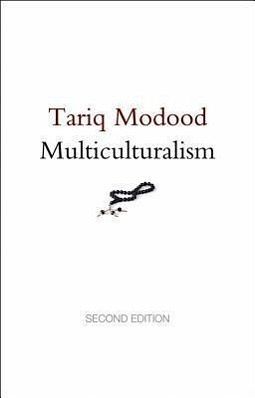
Multiculturalism
Versandkostenfrei!
Versandfertig in über 4 Wochen
69,99 €
inkl. MwSt.
Weitere Ausgaben:

PAYBACK Punkte
35 °P sammeln!
At a time when many public commentators are turning against multiculturalism in response to fears about militant Islam, immigration or social cohesion, Tariq Modood, one of the world's leading authorities on multiculturalism, provides a distinctive contribution to these debates. He contends that the rise of Islamic terrorism has neither discredited multiculturalism nor heralded a clash of civilizations. Instead, it has highlighted a central challenge for the 21st century - the urgent need to include Muslims in contemporary conceptions of democratic citizenship. In this compelling new book, Mod...
At a time when many public commentators are turning against multiculturalism in response to fears about militant Islam, immigration or social cohesion, Tariq Modood, one of the world's leading authorities on multiculturalism, provides a distinctive contribution to these debates. He contends that the rise of Islamic terrorism has neither discredited multiculturalism nor heralded a clash of civilizations. Instead, it has highlighted a central challenge for the 21st century - the urgent need to include Muslims in contemporary conceptions of democratic citizenship. In this compelling new book, Modood shows that inclusion is not possible within some narrow forms of liberalism. He argues that while different minorities need to be accommodated in different ways, a single template is not appropriate. He suggests, moreover, that such differential accommodation or multiculturalism cannot be the task of the state alone but must be shared across different civil society sectors. Controversially, he sees the revival of ideological secularism as an obstacle to multicultural integration but institutional secularism as an important resource for accommodating Muslims. This book will appeal to students, researchers and teachers of politics, sociology and public policy but also to general readers interested in the prospects of multiculturalism today. For discussion of Modood's ideas, see openDemocracy.



